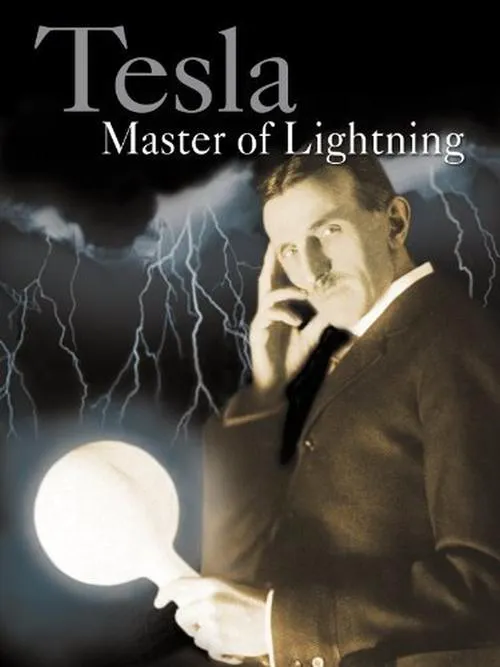Tesla: Master of Lightning

Plot
Nikola Tesla, a man whose name has become synonymous with innovation and progress, is often regarded as a mysterious figure. This enigmatic genius made groundbreaking contributions to the field of electrical engineering, yet his name remains shrouded in controversy. The documentary "Tesla: Master of Lightning" delves into the life of this eccentric inventor, shedding light on his remarkable achievements and the controversies that surrounded him. Born in 1856 in Smiljan, Croatia, Nikola Tesla was the fourth of five children to Rev. Milutin Tesla and Đuka Tesla. His father was a Calvinist priest, and the Tesla family was considered to be of modest means. Nikola's fascination with technology and science began at an early age, and he would often sneak into the local library to read about the latest scientific discoveries. This innate curiosity would serve as a defining characteristic throughout his life. Tesla's educational journey took him to the Technical University of Graz in Austria, where he studied electrical engineering. It was during his time in Graz that he became fascinated with the work of James Clerk Maxwell, who had introduced the concept of the electromagnetic field. This idea would have a profound impact on Tesla's future work and shape his understanding of the fundamental principles of electricity. In 1884, Tesla arrived in New York City, eager to pursue his dreams in the field of electrical engineering. He soon found himself drawn to Thomas Edison, who was at the height of his fame and fortune. Edison, however, was not impressed with the young Nikola. Despite this, Tesla managed to secure a job at Edison's laboratory, where he worked tirelessly to develop a more efficient method of delivering electricity. Edison, however, was more concerned with his own work and saw no value in Tesla's contributions. The two men eventually parted ways, with Tesla leaving Edison's laboratory in 1885 to start his own business. This marked the beginning of a long and arduous journey for Tesla, as he struggled to find funding and support for his innovative ideas. One of Tesla's most significant contributions to the field of electrical engineering was the development of the alternating current (AC) system. Edison, on the other hand, was adamant that direct current (DC) was the superior choice. The debate between AC and DC would become a defining battle in the history of electrical engineering, with Tesla's AC system ultimately emerging victorious. Tesla's work on the AC system was not without its challenges. He spent countless hours in his laboratory, experimenting with different configurations and testing his theories. His dedication and perseverance paid off, and he eventually developed a working model of the AC system. However, his struggles to find funding and support for his work continued, and he was often forced to rely on the charity of friends and family. The turn of the 20th century brought significant challenges for Tesla. His personal life was marked by turmoil, and his mental health began to deteriorate. He became increasingly reclusive, and his relationships with his friends and family began to fray. Despite this, Tesla continued to work tirelessly on his projects, driven by a fierce passion for innovation. The years leading up to the First World War saw Tesla's star begin to rise. His work on the AC system had gained widespread recognition, and he was hailed as a visionary by many. However, his struggles with mental health continued, and he became increasingly obsessed with his work. Tesla's fascination with the Earth's electromagnetic field led him to develop the concept of wireless power transmission. This revolutionary idea proposed that power could be transmitted wirelessly, without the need for wires or cables. While this idea may seem far-fetched today, it was a groundbreaking concept in Tesla's time. Tesla's final years were marked by hardship and struggle. He was forced to live in a hotel room, unable to afford a home of his own. His mental health continued to deteriorate, and he became increasingly isolated. Despite this, he continued to work on his projects, driven by a fierce determination to leave his mark on the world. On January 7, 1943, Nikola Tesla passed away at the age of 86, leaving behind a legacy of innovation and progress. Despite his struggles and controversies, Tesla's impact on the world of electrical engineering cannot be overstated. He was a true visionary, and his work continues to inspire and influence scientists and engineers to this day. In conclusion, "Tesla: Master of Lightning" provides a comprehensive look at the life and work of this enigmatic genius. Through a combination of Tesla's autobiographical writings, rare photographs, and re-creations, viewers are given a glimpse into the mind of a true innovator. Despite the controversies that surrounded him, Tesla's contributions to the field of electrical engineering remain undeniable, and his legacy continues to inspire and influence us all.
Reviews
Recommendations


